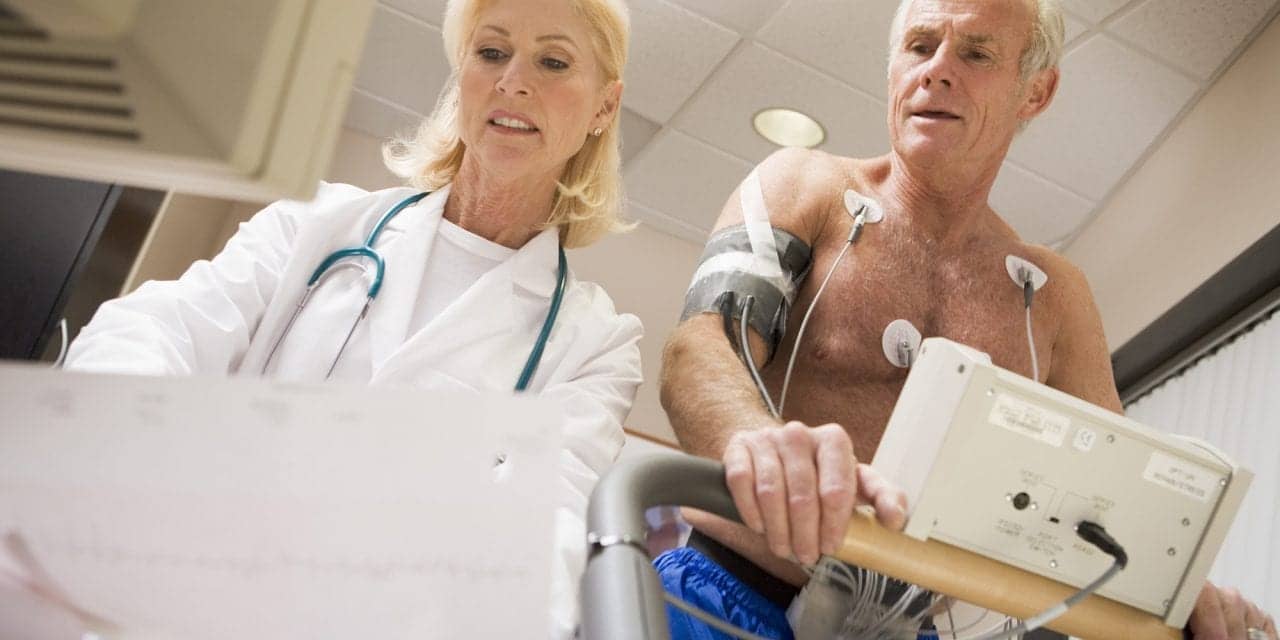The American Thoracic Society (ATS) has released a new clinical practice guideline recommending pulmonary rehabilitation for patients with chronic obstructive pulmonary disease (COPD) as well as pulmonary hypertension and interstitial lung disease.
Despite its effectiveness, pulmonary rehabilitation is underused and underprescribed, according to a release from ATS. Now, the panel charged with developing guidance for practitioners is hopeful the latest guidelines will change that. The panel issued a “strong” recommendation for pulmonary rehabilitation in adults with stable COPD.
Over the last 10 years, the ATS has published more than 43 clinical practice guidelines on various conditions, including COPD. Typically, only a minority of expert panel recommendations are “strong,” which was the case for both COPD recommendations, as well as the interstitial lung disease recommendation in the new guideline.
“A ‘strong’ recommendation indicates that the committee is certain that the desirable consequences of a recommendation outweigh the undesirable consequences,” says ATS chief of guidelines and documents Kevin Wilson, MD, in a release.
In addition, “strong” recommendations that are based upon moderate or high-quality evidence lay the groundwork for developing health care performance measures, which are used to determine clinicians’ adherence to specific recommendations (such as referrals of suitable patients to pulmonary rehabilitation).
“We hope that these clinical practice guidelines for PR [pulmonary rehabilitation] will be a call to action to clinicians to refer suitable patients to PR and encourage their participation in treatment, as well as foster pulmonary specialists’ communication with health care professionals in other disciplines (for example, primary care and cardiology) about the benefits of PR for patients,” says lead guidelines editor Carolyn L. Rochester, MD, professor of medicine at the Yale University School of Medicine, in a release.
COPD is the third leading cause of death worldwide, resulting in more than 3 million deaths in 2019, according to the World Health Organization. Low- and middle-income countries account for more than 75 percent of COPD cases globally. In the US, an estimated 30 million Americans have COPD. The rates of disease are made starker by the estimate of pulmonary rehabilitation treatment: only 3-4% of Medicare patients with COPD have been prescribed the treatment, according to a 2019 study in the Annals of the American Thoracic Society. The reasons pulmonary rehabilitation is rarely part of the treatment plan are varied and include a lack of knowledge on the part of both clinicians and patients, reimbursement issues, as well as health care disparity.
“There is an overall grossly insufficient number of PR programs available relative to the number of patients who could benefit, and individual programs’ capacity is limited,” says Rochester in the release. “Racial and socioeconomic barriers to PR referral and/or participation have been identified. In addition, insurance reimbursement of PR programs is insufficient (and is approximately half of the reimbursement rate for cardiac rehabilitation), despite a similar spectrum of services.”
Using the thorough, evidence-based Grading of Recommendations, Assessment, Development, and Evaluation framework, the expert panel made the following recommendations for patients with COPD as well as interstitial lung disease and pulmonary hypertension:
COPD Recommendations
1: Should adults with stable COPD undertake pulmonary rehabilitation? For adults with stable COPD, we recommend participation in pulmonary rehabilitation (strong recommendation, moderate quality evidence).
2: Should adults with COPD undertake pulmonary rehabilitation following hospitalization for an exacerbation? For adults with COPD, we recommend participation in pulmonary rehabilitation following hospitalization for an exacerbation of COPD (strong recommendation, moderate quality evidence).
Interstitial Lung Disease Recommendation
3: Should adults with interstitial lung disease undertake pulmonary rehabilitation? For adults with interstitial lung disease, we recommend participation in pulmonary rehabilitation (strong recommendation, moderate quality evidence).
Pulmonary Hypertension Recommendation
4: Should adults with pulmonary hypertension undertake pulmonary rehabilitation? For adults with pulmonary hypertension, we suggest participation in pulmonary rehabilitation (conditional recommendation, low quality evidence).
In addition to their recommendations for pulmonary rehabilitation, the panel shared recommendations for models of pulmonary rehabilitation delivery.










